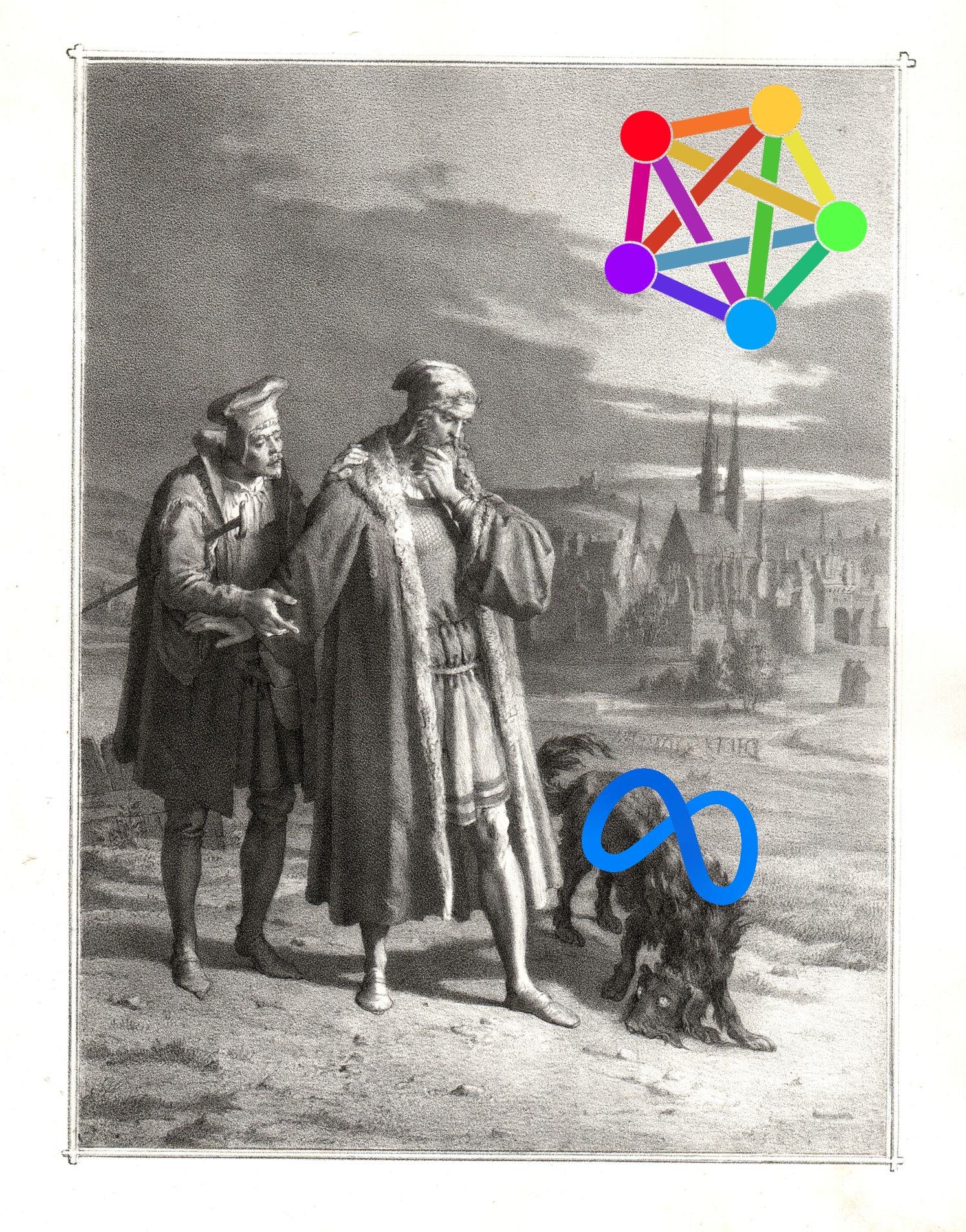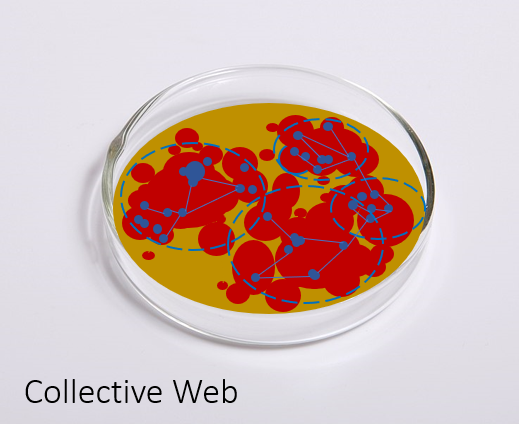New account on feddit.de
- 44 Posts
- 42 Comments

 2·10 months ago
2·10 months agoThanks :)

 6·10 months ago
6·10 months agoDo you know how far the development is? (just curious)

 11·10 months ago
11·10 months agoThey are following us because we‘re gaining traction. We‘re just going to stay ahead.
Agreed.
It’s fine. I guess we want to achieve the same thing but with different strategies. Let’s see what the future will bring.

 11·10 months ago
11·10 months agoYour wording shows that you‘re fully convinced that meta is some kind of deity.
Nope, just a company. I know that it has done some bad things. I just don’t think your strategy is effective.
We‘re not ignoring them, we‘re effectively boycotting them.
How can you effectively boycott something without social media? The Fediverse has ca. 2 million active users, Meta services have much more. If boycotting something means cutting yourself off from most of social media, nobody will notice and it won’t hurt Meta a bit. Its the #deletefacebook all over again.

 1·10 months ago
1·10 months agoIts a lucky guess. Enshitification happens in walled gardens because users cannot move to another service. In the Fediverse, I think this aggressive commercialization will not happen because users can just change to another server.

 22·10 months ago
22·10 months agoThat’s great, but you are not alone in this world. You cannot just pretend like Meta doesn’t exist. Actually, it will be the most powerful instance in the Fediverse. Its a new reality the Fediverse finds itself in and you just want to opt out of it and carry on like before. I understand it, but I just don’t think it will work.

 22·10 months ago
22·10 months agoIt’s less about the separation of powers and more about the fragmentation of each power. As in, you should be able to ditch any governing power that you dislike, and curb down its influence on your experience to a bare minimum.
I said separation of powers because you said the Fediverse should be like a democracy. Then it should have that. For me, democracy is first of all a better way to control those in power, which is why I think we shouldn’t think of the Fediverse as a democracy, because it isn’t; at least not currently. It’s not like you have a say in the general development of the Fediverse, because there is no real centre to it anyways.
So, I agree with you here, I just don’t think that’s what a democracy is. If the Fediverse would be a democracy, it would have government, a constitution, etc.
But as I said, I agree with you how we should think of the Fediverse: as acephalous. However, why should it be completely acephalous? Why shouldn’t servers make agreements with one another? The Fedipact is one of those, the badspace, too. And while I’m not a fan of the first one, its generally fine, if they don’t force people into it (like you said). Why then not try to do the same thing but with some actual principles?
What happens if said commitee becomes hostile, defending its own self-interests in detriment of the ones of the rest of the Fediverse?
Then many servers will opt out of it and it will become irrelevant. That’s the beauty of it. Because its only an agreement that is not controlled by any centrlized entity, its not as binding. The same as with the Fedipact: it wasn’t set up by any central entity and will not be enforced by it other than the community or powerful servers. But that the community and powerful servers will try to influence the course of the Fediverse is the the case anyways!
And the ones screwing up on moral matters get isolated.
For Nazi-instances, that’s easy, but for example in the case of Threads, it quickly becomes very complicated to agree on which instances should be isolated and which not. How do you determine that if not through speaking to other servers? And if you do that, you can just as well speak to them about common rights and write them down somewhere. It’s the same thing but with more transparency.
We cannot build the Fediverse without trust and mutual agreements. It will just not work; and we are also already doing it.

 37·10 months ago
37·10 months agoYou make a few good points, I will try to counter them.
The core idea of the fediverse is the same as democracy - that nobody should control the whole. Both are similar enough to allow comparisons.
True, its for separation of powers but this doesn’t mean there cannot be any central rules decided upon. For example the consititution of the united states. However, because the Fediverse doesn’t have a government, I think a better analogy would be a league of more or less democractic countries that work together. Of course they can agree to an universal declaration, like the united nations agreed on human rights for exactly the same reasons.
So yes, I think that instances should defederate Threads and encourage other instances to do so. However, they should not do it too hard, to the point that you’re effectively dictating what others should be doing.
Agreed. However, there is a difference between a constitution of a country and agreements between countries. For example, the NATO has an agreement with the US that if any NATO country is attacked, US will jump in. However, this is completely build on trust, if Trump decides to not jump in, no one will be able to stop him, meaning there isn’t any higher institution that controls the different actors in this agreement other than the actors themselves. This is why I think the analogue of a league of nations is better, because agreements can be much more loose here.
Of course, there would still be a question who would write this document, but the basic idea would be that if it was supported by many servers, it would be put up more or less by word of mouth. To do this most effectively, it would be good to create the document in a way that many servers willing to agree to it. For example through a ActivityPub commitee that exists anyways or a popular meetup of Fediverse servers. And eventually, the most reasonable one will be hold up by the most servers. I think of it as a dynamic process.
But yeah, there would have to be put some thought into it how to craft it and most likely we don’t have the institutions yet to do something like that.
That fallacy has a deep impact across the text because the author believes that people can eventually agree on moral grounds based on reason. Often they don’t - because it depends on the moral premises that each adopt, and moral premises are not true/false matters to begin with.
Could be true, I need to think about this longer. However, I still think that as a foundation, basic fediverse rights could be agreed upon through reason and that they could become effective tools against Meta and to improve the Fediverse in general. Of course, they shouldn’t be too detailed and let enough freedoms how to realize them technically.
the actual problem is that the Fediverse is internally shattered and cannot agree on anything, including basic moral rules and principles.
That is not a problem. That’s a feature.
I think its good that different moral rule sets can easily develop and implemented; but I think sooner or later it will become a problem, at the latest when more radical parts become pre-dominant. Its not like the Fediverse will automatically develop in a good direction. I don’t believe in a hierarchy-free, anarchic society. We need institutions and agreements to ensure that the Fediverse stays a good place.

 316·10 months ago
316·10 months agoThe Fedipact is deeply regressive. It follows web2 logic, meaning, it treats the arrival of Meta, like it delt with problems in web2: it uses defederation like cancelling - although cancelling heavily depends on the network effects of social media, most of which Meta owns. While in web2, it was possible to isolate people that one was at odds with through this, it doesn’t work like this here, because the cost to do so are much higher, when in web2 they were zero. You are basically trying to cancel the thing that gave you cancelling. This is why the Fedipact will be neither effective against Meta, nor other similar problems in the future. Most of this stems, I think, from the fact that the Fediverse is overwhelmed with the situation and doesn’t have a better solution, and that it hasn’t really understood network effects and how they work in the new, federated social web; so, it falls back in old, regressive behaviour.

 34·10 months ago
34·10 months agoI strongly disagree meta’s involvement is necessary for the fediverse to grow and become big.
To a certain degree, yes. But that growth has its limits because of network effects. Most people want to be where their friends are.
If they choose to split or defederate those communities on the non-meta side of the fence would be back to square one building from scratch.
But they are already there. Also, companies like Flipboard and Medium will continue to join the whole thing. It will be nearly impossible to convince ALL of them to leave this big growth potential behind and instead join the old Fediverse, which is much smaller.
I think in any case, there will be three new big factions on the Fediverse: Meta, non-Meta which federates with Meta and the Fedi-Pact-Fediverse. I think there is not much either of us can do about it. But I’m more symphatizing with the second group because I think ActivityPub was developed as an open protocoll and its the only way to make the Fediverse big (doesn’t mean btw that the federation-policy regarding Meta cannot dynamically change over time, this way it becomes a tool against Meta; just permanently defederating doesn’t make sense in my opinion).

 1011·10 months ago
1011·10 months agoI think this is generally a valid point of view. However, what I don’t like is to frame it as a easy-to-make-point, something that is basically obvious. Because it isn’t, mainly, because of network effects.
Not opening up to Meta means prevent the Fediverse from becoming a global thing. Not opening up to Meta means not to shape the future of the social web.
If you have this opinion, you implicitly say that you want the Fediverse to stay small. However, I think we can all agree that it would be good if the Fediverse became big. And the only possibility to achieve that is through the growth through Meta, which doesn’t mean working together with it, but profiting from it and cutting in its growth (which admittedly, will not be easy as well and, as you pointed out, also comes with its own moral drawbacks, which have to be thought of, too).
Meta is not cool. But it won’t help to hide away in a shelter until the whole thing has blown over. Because it won’t. All that will happen is that the part that opened up to Meta will grow rapidly and the other part will stay small and become less relevant. In this sense, now is the best time to drive change in the social web, until it is again dominated by Meta. Now we still have the choice to join and work against Meta in the social web.
Just because you federate doesn’t necessarily mean that you work together with it. But if you hide away, you leave the whole field of action up to Meta without even trying. Apart from the fact that it’s barely explainable to anyone outside the Fediverse. They will and already do blame us of double-standards: why create an open protocoll if the ecosystem wants to stay small anyways?

 14·10 months ago
14·10 months agoBecause its currently the most open and easy to extend for them?

 21·10 months ago
21·10 months agoThanks! Yeah, I struggle to keep my sentences short. I will keep it in mind :)

 48·10 months ago
48·10 months agoUnlikely. Meta has thousands ways to stop the Fediverse from growing if it wants to. One thing is to just pull the plug on the whole thing. Another is to delete mentions of the Fediverse.

 39·10 months ago
39·10 months agoBut I mean, already lots about the buzz caused around the Fediverse nowadays only EXISTS because Meta anounced to join
The most obvious thing is: scale. With matter, ActivityPub is finally tried out on a bigger scale. If a global, big fediverse was the goal, this was always one way how it could go. A big player is joining and then, the Fediverse in turn grows and grows with it; just like with the WWW and AOL. What’s your alternative to this?
Or don’t you want the Fediverse to become a big, global thing where everyone has a Fediverse account and so on?

 21·10 months ago
21·10 months agoThanks :)

 11·10 months ago
11·10 months agoNo wait, I think it doesn’t. Because other instances will federate with Threads and because of this, it doesn’t make sense to block Threads permanently.

 11·10 months ago
11·10 months agoThat could actually be a forth category, but what’s the argumentation? Because Threads is a monopoly?



















Fair enough. I take it into account next time.